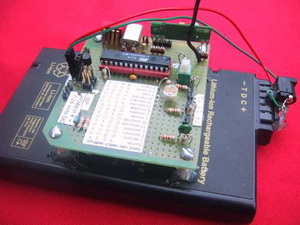Introduction:

Temperature transmitters play a crucial role in various industries, allowing precise monitoring and control of temperature levels. One such transmitter type is the Pt100 Temperature Transmitter, used for measuring temperatures with RTD Pt-100 sensors. In this blog post, we will delve into the details of temperature transmitters, their applications, and the importance of Pt100 sensors. Additionally, we will focus on the benefits and features of the ABUS Fr Block Series, a renowned head-mounted Fixed Range Temperature Transmitter.
Understanding Temperature Transmitters:
Temperature transmitters are devices used to convert the resistance or voltage signals produced by temperature sensors into standardized output signals such as 4-20mA, HART, or Profibus. They are widely employed in process industries, HVAC systems, food processing, pharmaceuticals, and numerous other applications where temperature control is vital.
Importance of Pt100 Sensors:
Pt100 sensors are among the most commonly used resistance temperature detectors (RTDs). They offer high accuracy, stability, and long-term reliability compared to other types of temperature sensors. Utilizing platinum as the sensing element, Pt100 sensors exhibit a linear resistance variation with temperature changes. The ABUS Fr Block Series is specially designed to effectively interface with Pt100 sensors and deliver accurate temperature measurements.
Features and Benefits of ABUS Fr Block Series:
1. Head-Mounted Design: The ABUS Fr Block Series is a head-mounted temperature transmitter that ease installation and integration into existing systems.
2. Precise Temperature Measurement: With Pt100 sensor compatibility, the Fr Block Series ensures highly accurate temperature monitoring, which is critical in many industrial processes.
3. Advanced Signal Conditioning: This series is equipped with advanced signal conditioning techniques to minimize interference and deliver reliable output signals.
4. Fixed Range Outputs: The Fr Block Series provides selectable fixed range outputs, enabling seamless integration with control systems and data acquisition systems.
5. Configuration Flexibility: These transmitters offer flexibility in terms of numerous configuration options, allowing customization based on specific application requirements.
6. Robust Design: ABUS Fr Block Series is designed to withstand harsh environments, ensuring durability and reducing maintenance requirements.
7. Cost-Effective Solution: By delivering accurate measurements and durability, the Fr Block Series offers a cost-effective solution for temperature monitoring and control needs.
Optimizing Blogs for SEO:
In the realm of digital marketing, it is essential to optimize content for search engines. Maximizing exposure through the effective use of keywords is a crucial aspect. In the case of temperature transmitters and Pt100 sensors, incorporating certain targeted keywords will enhance the visibility and reach of this blog post. Some relevant keywords to include are "temperature transmitter," "Pt100 sensors," "temperature monitoring," "head-mounted transmitter," and "fixed range outputs."
Conclusion:
Temperature transmitters are vital components in numerous industrial sectors, facilitating accurate temperature measurement and control. Pt100 sensors have proven to be a popular choice, offering superior accuracy and stability. The ABUS Fr Block Series provides a robust and efficient solution for integrating Pt100 sensors with its head-mounted design and advanced signal conditioning. By incorporating these devices, industries can enhance their temperature monitoring capabilities and optimize operational efficiency.
In summary, temperature transmitters, such as the ABUS Fr Block Series, are essential tools for achieving precise temperature control, while Pt100 sensors guarantee accurate measurements. Embracing these technologies is crucial for industries to ensure product quality, system reliability, and operational efficiency.
